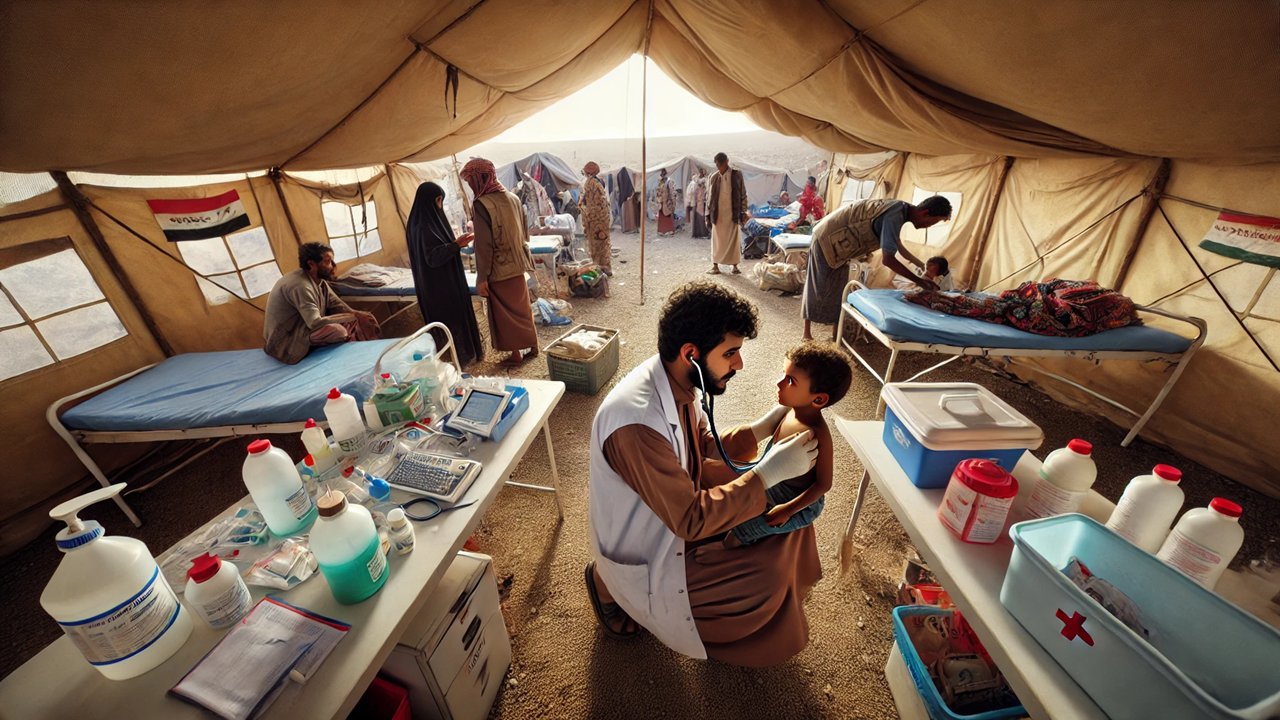The UN Refugee Agency (UNHCR) has raised alarms over the deteriorating conditions faced by millions of displaced people in Yemen, as the country’s prolonged crisis continues to deepen. A recent UNHCR assessment paints a grim picture of the situation for internally displaced persons (IDPs), returnees, and host communities in Yemen.
The Internally Displaced Persons Protection Monitoring Update, based on data from over 47,000 households in the first half of 2024, reveals severe hardships faced by displaced families. Alarmingly, 85% of these families are unable to meet their daily food needs, with many resorting to extreme measures like reducing meal sizes or skipping meals altogether. This widespread hunger highlights the harsh realities of life for those caught in the ongoing conflict.
Another critical issue highlighted in the report is the lack of civil documentation among displaced families. Over half of the families surveyed have at least one child without a birth certificate, and 70% have family members without national identity cards. The absence of these essential documents prevents families from accessing vital services, education, and their fundamental rights, further entrenching their vulnerability.
Despite efforts to improve living conditions, most displaced families remain unable to return home due to ongoing instability, lack of livelihoods, and dangers such as landmines. This has left many trapped in a cycle of protracted displacement, with no clear path to safety or stability.
Yemen’s crisis, which remains one of the world’s worst humanitarian emergencies, continues to escalate even as global attention shifts to other crises. Currently, 18.2 million people in Yemen, including 4.5 million displaced, are in urgent need of humanitarian assistance. This number includes over 60,000 refugees and asylum seekers from countries like Somalia and Ethiopia.
Compounding the crisis, Yemen has recently been hit by catastrophic flooding, particularly in the Malhan district of Al Mahweet governorate. Triggered by heavy rains and the bursting of three dams, the floods have devastated entire communities, claiming 97 lives and displacing over 1,000 families. The floods have also unearthed unexploded ordnance, adding further danger to civilians and humanitarian workers.
As the lead agency for protection, shelter, and camp coordination, UNHCR is working with local partners to provide urgent assistance. This includes ramping up cash assistance to the most vulnerable, supporting immediate crises, helping families obtain documentation, and repairing damaged shelters. However, available resources are critically insufficient. As of July 31, UNHCR’s $354 million appeal for Yemen was only 21% funded, leaving key areas like protection and shelter severely underfunded.
UNHCR is calling on the international community to intensify its support for Yemen, warning that the world cannot afford to overlook this crisis any longer. With millions of lives at stake, sustained and coordinated global support is urgently needed.











